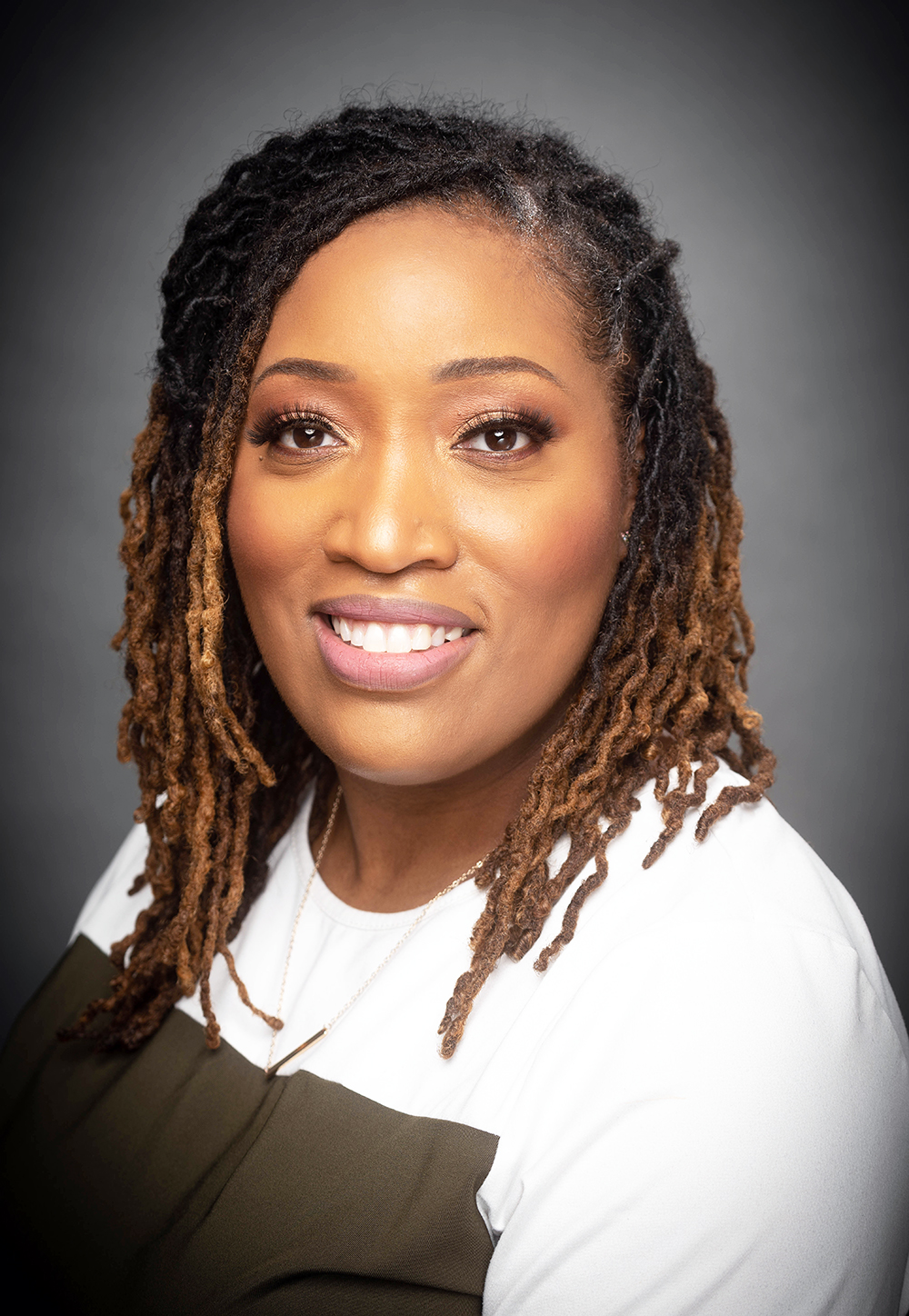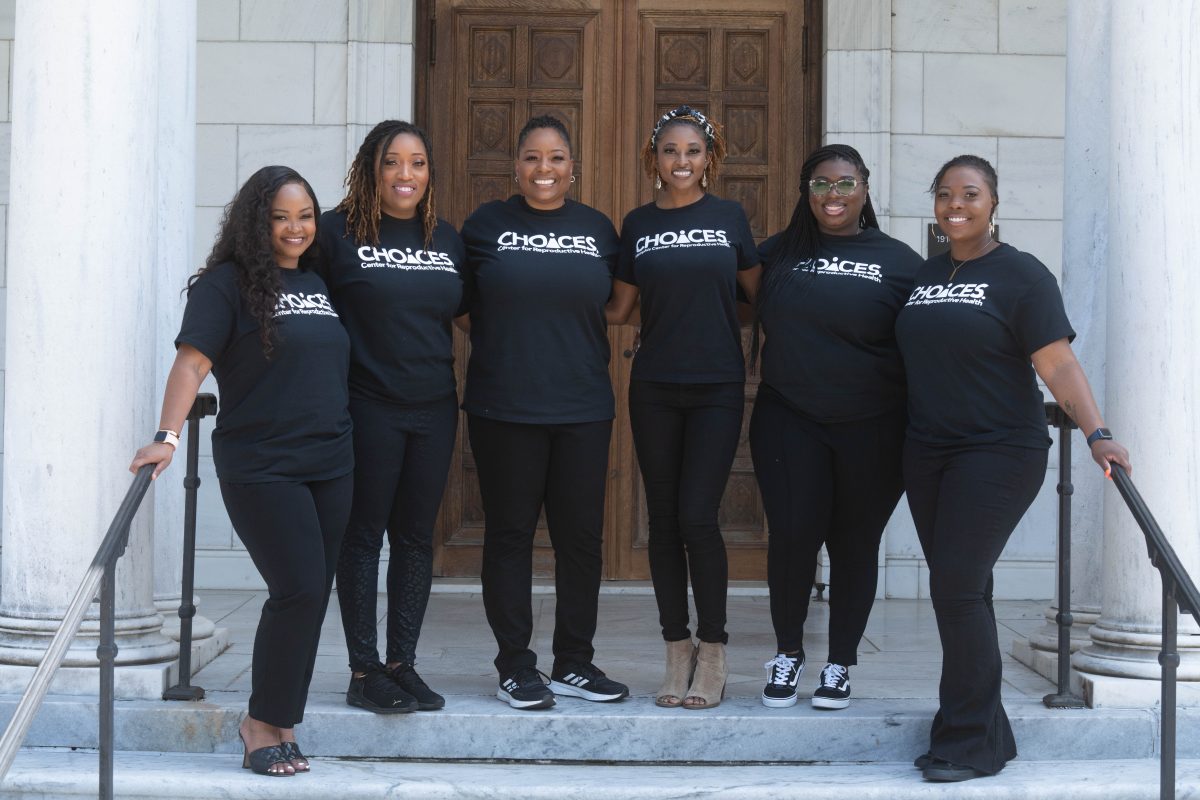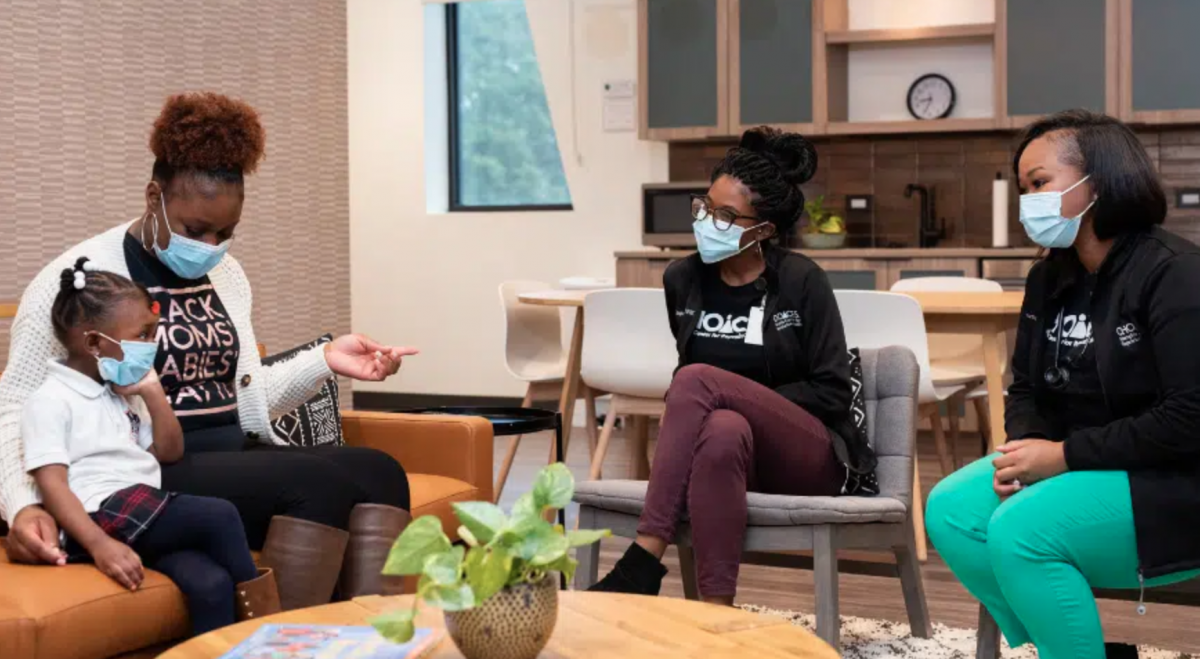“I was told I would never be able to have my own children,” said D., a nurse who is married to a military officer and lives in the Memphis area. Her voice is tense and urgent over the phone, a rush of words to get her story out.
D. has a number of conditions that, doctors informed her, would make a pregnancy unlikely, including a genetic condition that increases the chances of developing abnormal blood clots and is associated with severe pregnancy complications. Yet her treatment by doctors and nurses at a Memphis hospital only made her situation worse — much, much worse — which is why she gave testimony at a “tribunal” held by the birth justice organization Elephant Circle in Memphis last December, and subsequently spoke to the Memphis Flyer.
Despite her diagnosis of infertility, D. (who has asked to use only her initial to preserve the couple’s privacy) became pregnant spontaneously, much to her and her husband’s surprise and delight.
Early on, she began to have concerns about her obstetrician at Baptist Memorial Hospital for Women, when he contradicted her previous obstetrician’s prescriptions and recommendations. (She had seen doctors in Atlanta, early in her pregnancy, before moving to Memphis.) Having been a labor and delivery nurse for six years in Atlanta, D. herself had extensive knowledge about pregnancy and childbirth.
Despite some misgivings about her care, her pregnancy seemed to be proceeding normally until her cervix dilated at 16 weeks. Her doctor then performed a procedure to keep her cervix closed and prescribed bed rest, either at home or in the hospital.
“I assumed because I would be around doctors and nurses, it would be safer for me to stay in the hospital,” she said. “That was a mistake.”
Throughout the seven weeks of her hospital stay, she had numerous health concerns, which she attempted to bring to the attention of the hospital staff. Rather than the care and concern she expected, she said, she was labeled a “difficult” patient. She and her husband suffered racist remarks. Nurses called her husband the “baby daddy” and called D. “girl” or “the woman with dreads.”
At 23 weeks, she was transferred to labor and delivery in the middle of the night to have an induced birth. (Generally, doctors decide to induce a birth at this stage because of concerns for the health of the mother or the baby.) She kept her eye on the fetal heart rate monitor and saw the rate was higher than normal.
“It kept on tapering up,” she said. “I was like, ‘Can I see the doctor?’” The nurse replied that the doctor said to just monitor the situation. D. began to urgently insist on seeing other hospital personnel, such as the hospitalist, the director of medicine, the director of nursing, the house supervisor, the shift supervisor. No one came.
“I literally watched my son die for 12 hours,” she said.
In the early morning hours, after having seen an abnormally high fetal heart rate, she then watched the fetal heart rate steadily drop.
“Every time I watched it drop, my heart sank with it because as a labor and delivery nurse, I knew my child was dying. And I kept on asking and crying, begging for somebody to walk into that room and help me. And no one did. No one helped me.
“I told everyone at the hospital, ‘You guys made me a statistic.’”

Shelby County gets a grade of “F”
Nationwide, we are experiencing a maternal health crisis, with one of the highest maternal mortality rates among high-income nations. The mortality rate is even higher among Black women.
“We know that particularly for Black and brown populations, the risk of dying in childbirth is two to three times higher than other groups,” said Dr. Alexis Dunn Amore, the midwifery director of the CHOICES Center for Reproductive Health. “And that holds true for Shelby County as well.”
Though the maternal mortality rate has improved post-pandemic, both in the U.S. and abroad, the U.S. still has the highest mortality rate among wealthy nations, at 22.3 per 100,000 births, according to 2022 statistics. Black women died at a rate of 49.5 per 100,000 — more than twice the average. By comparison, Norway had zero maternal deaths in 2022.
The most recent Centers for Disease Control figures, for the years 2018 to 2022, rank Tennessee as having the highest maternal mortality rate in the country, at 41.1 per 100,000 births — 84 percent higher than the current national average. Tennessee gets a grade of D for preterm birth rates from the nonprofit March of Dimes, and Shelby County an F.
Black and brown women also have higher rates of preterm births, low birth-weight births, and births for which they received inadequate (or no) prenatal care compared to white women. Black women have the highest rate of preterm births (14.6 percent) among all races, about 50 percent higher than white (9.4) or Asian birthing parents, who have the lowest rate (9).
A report by the healthcare foundation Commonwealth Fund cited the lack of a federal paid parental leave policy and a shortage of maternal care workers, including OB-GYNs, as a cause of the high maternal mortality rate in the U.S. And the report particularly noted the lack of midwives in this country.

Birth center suites at CHOICES offer a bit of luxury. (Photos: Courtesy CHOICES)


The birth center family lobby (Photos: Courtesy CHOICES)
“We want people to feel loved and cared for”
Midwifery has a long history in the American South, Amore points out. Her great grandparents were sharecroppers in Marshall County, Mississippi, where at the time, midwives were prevalent. Midwives especially helped Black mothers in rural areas, who were barred from segregated hospitals.
“I remember my grandmother telling me stories about when her mother gave birth,” Amore said during an interview in her office. Midwives were “the standard of care back then.”
One of 21 children, her grandmother even assisted in the births of some of her siblings. But as privatized medicine grew in the U.S., doctors and public health officials persuaded women to abandon midwifery. In 1900, nearly all U.S. births occurred outside of a hospital; that fell to 44 percent by 1940 and to 1 percent by 1969.
Amore’s own mother gave birth to her in a hospital. Yet when, during her nurse’s training, Amore found out about training for modern nurse midwives, she went back to school to become one herself.
Being a nurse midwife, she said, “just feels like it’s family-oriented, community-focused, and all of that just aligns with who I am as a person.”
When CHOICES began offering pregnancy care in 2018 at its previous location, it provided midwifery as part of those services. CHOICES’ new, bright green building, opened in September 2020, includes modern birthing suites.
CHOICES reproductive care in general is focused on reproductive justice, Amore said, meaning that women make their own decisions about whether or not to have a baby and what sort of care they desire.
CHOICES also makes a point of serving marginalized communities, including low-income people. Serving a population that is largely on Medicaid and predominantly Black, CHOICES intentionally created a beautiful, welcoming space for patients who are often relegated to subpar clinics.
“The marginalized society, they never get the best. And so we really want people who come in this building to feel that they’re loved and cared for,” Amore said — both in the provided services and the design of the facilities.
The CHOICES facilities do present a striking contrast to a hospital environment. A tour of the three birthing suites reveals rooms that are more like a luxury hotel suite than a hospital, tastefully decorated, and equipped with a bathroom, large shower, birthing tub, access to an outdoor patio, birthing balls, ballet bars in the hallway (to squat between contractions), a diffuser for essential oils, and dimmable lighting. Moms-to-be can bring their own playlists to the Bluetooth-equipped suites. There is also an area for families to relax, watch TV, and cook.
In case of an emergency, there are also oxygen tanks and emergency medications; all staff is trained in neonatal resuscitation. CHOICES is purposefully located within minutes of Regional One Health and Le Bonheur Children’s Hospital, where patients can be taken if needed.
Compared to a noisy, crowded hospital, CHOICES’ space “helps your body to not feel stressed, for the natural physiologic processes to proceed a little bit easier,” she said.
Patients go home four to six hours after a birth, following a thorough check of the mother and baby. Hospitals generally impose stays of at least 24 hours. CHOICES midwives make home visits to new parents the day following the birth.
CHOICES improves on state and local stats
Evidence shows there are improved outcomes — fewer medical interventions and cesarean sections — with midwives compared to hospital births in low-risk births. (Many midwives also provide care for high-risk pregnancies, partnering with specialized physicians.)
Working with the University of California, San Francisco (UCSF), CHOICES has conducted research indicating that the outcomes of its birthing center are dramatically better than state and county averages.
“When you compare CHOICES to Shelby County and the state of Tennessee, we have much lower rates of cesarean birth, low birth weight, preterm birth,” Amore said. “We’ve had no maternal deaths.” There were also no newborn deaths.
Alden Blair is research director for UCSF’s Global Action in Nursing group, which is partnering with CHOICES on its research; he also happens to be married to a certified nurse midwife.
According to the data Blair helped analyze for the 407 CHOICES births from 2018 through 2023, patients come from 58 zip codes in Tennessee, Mississippi, and Arkansas. Some come from more than 300 miles away.
Sixty-nine percent of CHOICES patients are on public insurance and 84 percent are Black. (Midwifery services are generally covered by insurance, including Medicaid.)
Because of the socioeconomic challenges of CHOICES’ patients, Blair said, “We would expect to see higher C-section rates, higher rates of preterm birth, higher rates of low birth-weight babies. But that’s not the case.”
In fact, a CHOICES patient is 4.5 times less likely to have a C-section than elsewhere in Tennessee, 4.8 percent less likely to have a low birth-weight infant, and 2.2 percent less likely to have a preterm birth. These stark differences are similar when looking specifically at Shelby County data.
Citing March of Dimes statistics, Blair said Shelby County had a 12.9 percent rate of preterm births, rising to 14.7 percent for Black parents, compared to CHOICES, which had an overall 5.1 percent rate of preterm births and an even lower percentage for Black parents, at 4.1 percent.
CHOICES also keeps costs low, charging $6,800 for pre- and postnatal care and delivery, a mere fraction of the $24,000 national average for patients with employer insurance. Tennessee is among the states with the highest out-of-pocket expenses for families. Compared to costs for an uncomplicated hospital delivery, charges increase with a cesarean section, which account for about one third of U.S. deliveries. Costs rise exponentially for high-risk pregnancies.
National, Tennessee, and Shelby County rates for C-sections are above 32 percent; whereas, the World Health Organization recommends a level between 10 and 15 percent. Among CHOICES patients, only 9.8 percent have a cesarean, performed after they are transferred to a hospital.
“When mothers are given to labor in a healthy, safe environment, we see better outcomes,” Blair said. He noted too that research indicates that racial or ethnic concordance between the patient and provider improve health outcomes.
Blair pointed out that CHOICES is conducting research on its methods to both improve itself and share effective procedures for others to replicate.
“They’re not trying to keep their special sauce,” he said.

“People want to be listened to”
Nurse midwife Talita Oseguera came to Memphis from California about three years ago specifically to work at CHOICES, where she hoped to address racial health disparities — and to honor the history of Black midwifery in the South.
“One thing that attracted me to CHOICES was the idea of the restoration and acknowledgment of Black midwifery,” she said.
As part of her graduate training, she interviewed patients of color about their pregnancy, labor, and postpartum experiences. Her research reinforced her desire to find alternatives to traditional hospital birthing practices.
Echoing D.’s experience, patients told her over and over again that medical professionals had “an intolerance of Black pain,” she said, and saw Black patients as too loud or too abrasive. Hospital staff often did not listen to patients, who often felt they were subject to procedures without their consent — even being physically pinned down.
Even during prenatal care visits, patients told Oseguera, they were subjected to microaggressions or outright racism.
Midwifery, by contrast, attempts to “treat and partner with the whole person,” Oseguera said. People who have experienced both a hospital and midwife-attended birth have told her that the latter is an eye-opening experience, where they feel seen and heard.
“What people want is safety,” Oseguera said. “What people want is to be listened to and honored and not die.”


